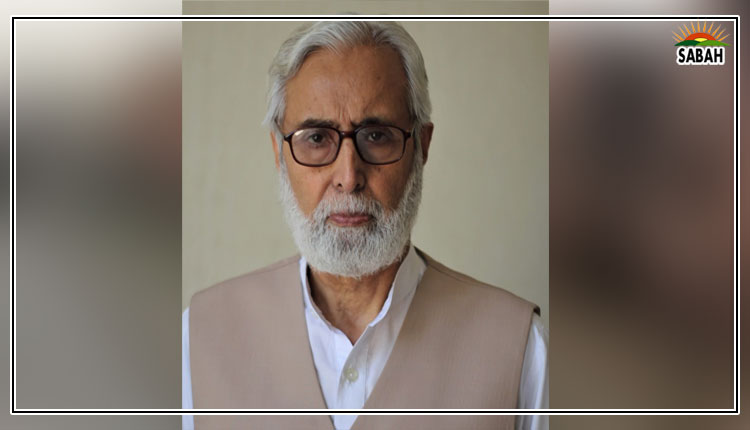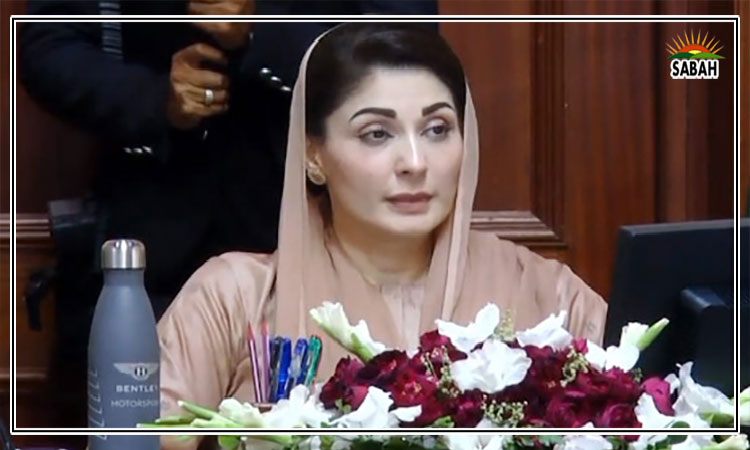Two visions…Adeel Wahid
THERE are two broader perspectives, two distinct worldviews Weltanschauungs if you will which inform ones attitude towards other human beings. That perspective may, in turn, also determine the outlook one develops towards oneself, and the relationship between the state and an individual.
First, there is Iqbals vision of man (used as a gender-neutral term). Iqbals man is capable and worthy of attaining the status of a vicegerent of God on earth. Iqbals version of the fall of man encapsulates this vision, where, in the very act of disobedience, Adam and Eve, essentially, displayed their independent will, an idea of self-hood.
The fall of man, as a result, was, in a sense, the birth of a new kind of man ready to be placed outside the embryonic protection, vulnerable, out in the open, to confront a new set of challenges, both physical and spiritual. In this sense, the fall was, in fact, a metamorphosis.
In pushing back against the Will of the omnipotent Creator, man displayed an assertion of self, that is probably a prerequisite for self-actualisation and attaining a deeper understanding of God. Adam, before whom the angels had bowed down, had not irreparably tarnished himself, but had, in fact, shown, through his act of disobedience, the very ability that makes possible the attainment of the heightened status achievable by man.
Man can be viewed as an object to be controlled, disciplined, indoctrinated.
The Western liberal political philosophy, or some portion of it, also underscores the importance of an individual attaining their full potential. This is primarily achieved through freedom from all external restraints. There is an overarching focus on the Bill of Rights, for instance, where the discourse centres around one being able to do anything, and not be restrained, as long as others are not harmed.
Patrick Deneen, among other conservatives, has pushed back on these liberal doctrines, asserting that the narrow focus on individual rights and progressivism, in general, comes at a cost to the common good, and a complete dismantling of tradition, even the aspects that may be worth preserving such as the concept of family and neighbourhood. Hyper-individualism, where ones ends, wants, desires and rights need to be preserved at increasing costs, may end up leading to, among other things, perverse forms of consumerism.
Conversely, man can also be viewed, not as the subject, or the potential vicegerent of God, but as an object, to be controlled, disciplined and indoctrinated. He may be required to preserve an ideology, any ideology, at all costs. In some easily accessible examples, such a vision has manifested itself in Stalins Russia, Mussolinis Italy, Hitlers Germany, Modis then Gujarat, and now India. In various forms, it has also existed in Pakistan.
Under this vision, not everyone is worthy of respect; some are more equal than others, on any arbitrary basis that society, with or without the sanction of the state, may have determined if not on the basis of caste, for instance, then on the basis of wealth, popularity, office, tribe or religious denominations. Dehumanising the disliked, a perceived recalcitrant segment, or those who fall out of favour, and then legitimising any treatment meted out to them, is the method of choice. In recent memory, this happened in Guantnamo, Abu Ghraib, and Bagram prisons. It continues to happen in Palestine, to Muslims in India, Uighurs in China, Kurds in Turkey and to the minorities and the disfavoured in Pakistan.
Those who do not commit to the larger ideology, that the majority may have adopted, or which may have been imposed by a heavy-handed state, or both, need to be disciplined, broken, and forced to bow down.
And these attitudes may also project themselves in our day-to-day lives, such as in our homes, with our domestic servants; with men demanding absolute subservience from their wives; and the moneyed and entitled classes seeking that subservience in public spaces, such as on the roads.
Whichever of these two visions one adopts shapes the way we treat others, or a subset amongst them. This vision may also inform the treatment that the state extends to the people being governed. Does the state, for instance, err on the side of protecting the weak and vulnerable, or does it err on the side of keeping everyone in line, lest there be anarchy?
By belittling its people, a nation cannot soar. And if the only thing an individual or a nation is good at is following directives, then that individual or nation is just as good as the directive being followed. And when one is made to bow down before another mortal, it comes at a monumental cost of relinquishing the potential vicegerency.
The writer is a lawyer based in Islamabad.
awahid@umich.edu
Courtesy Dawn, July 13th, 2023











